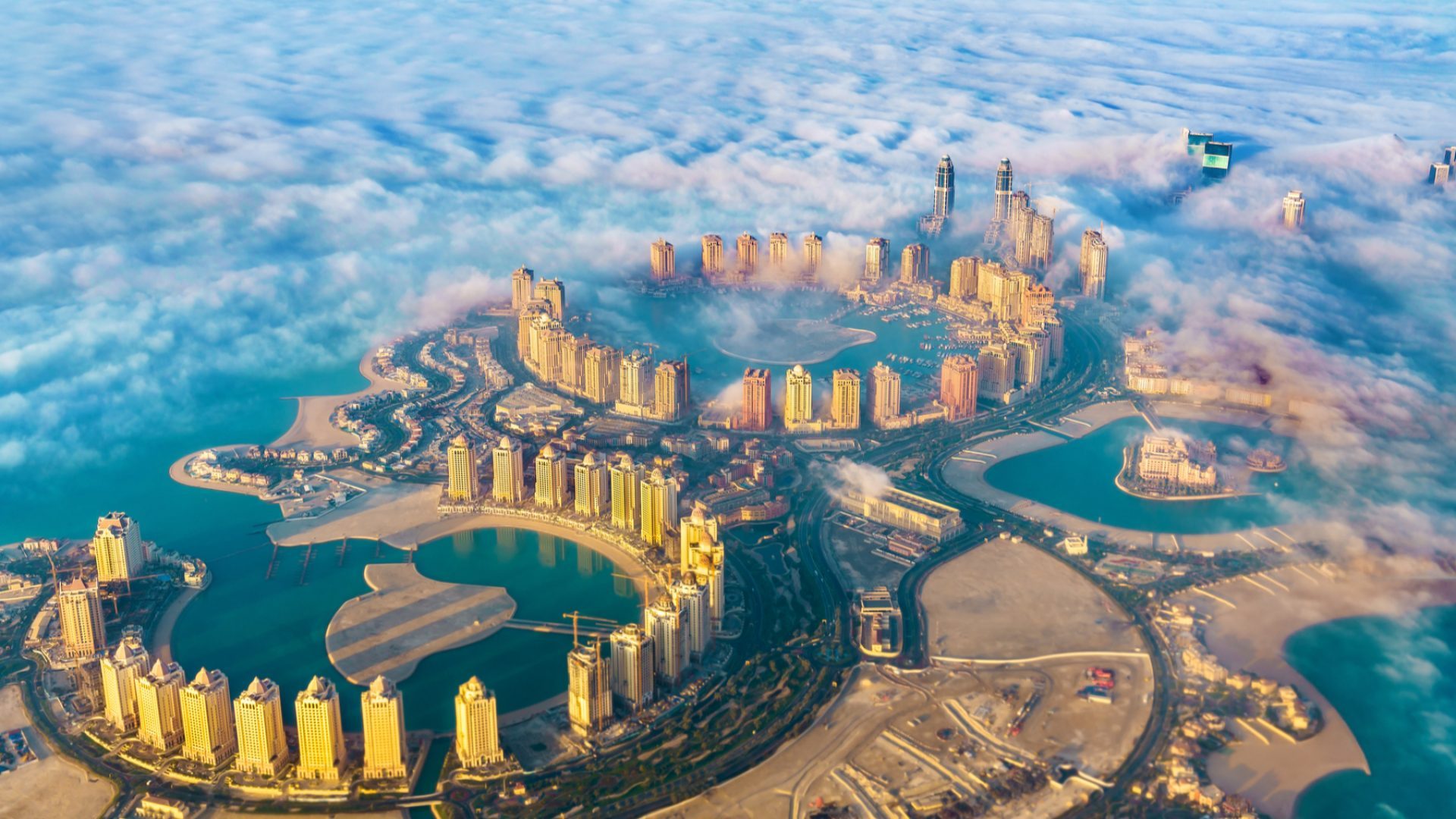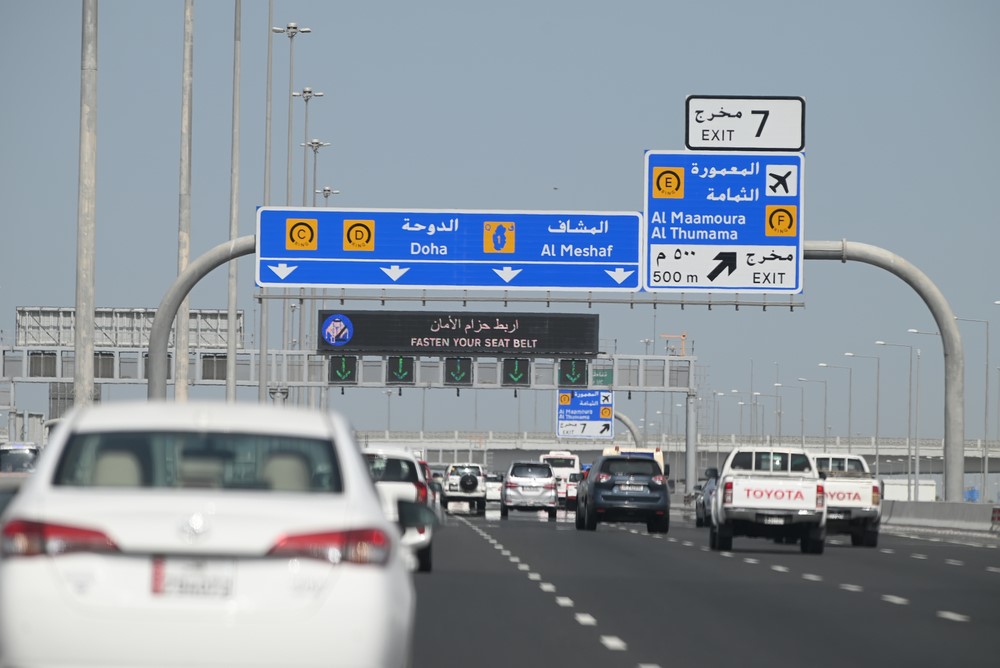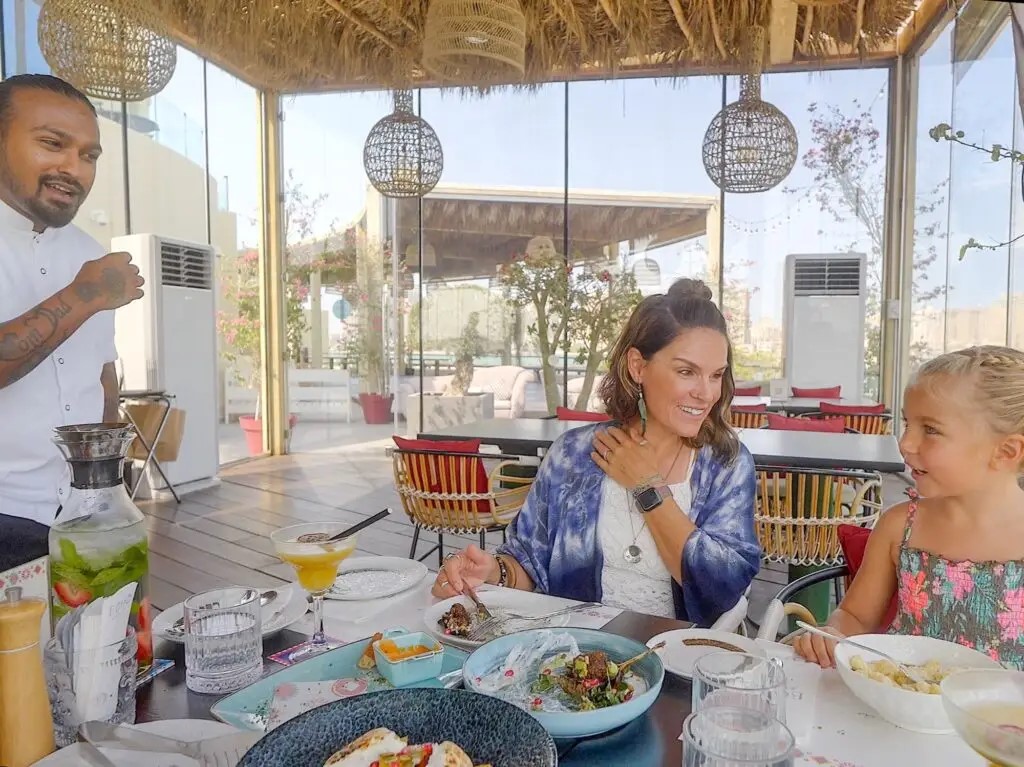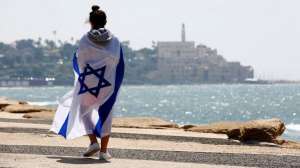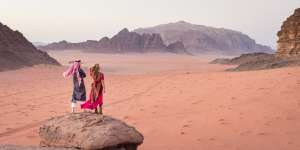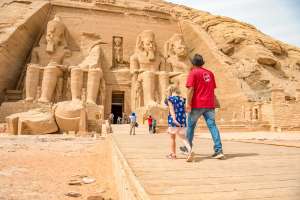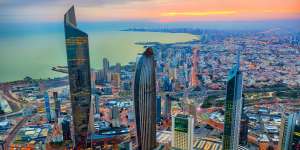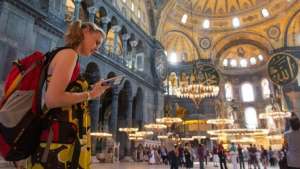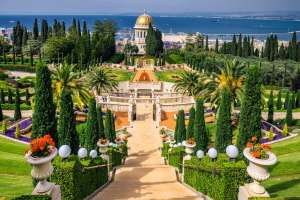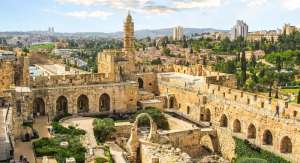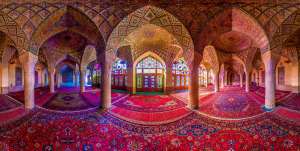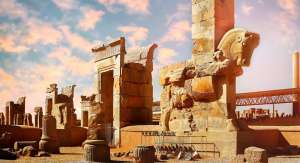Doha today stands as one of the most dynamic and forward-looking cities in the Middle East—a place where ambition and innovation seem to grow as rapidly as the skyline itself. Over the past decade, the capital of Qatar has transformed into a thriving hub for business, education, culture, and sports. Its modern energy attracts professionals, artists, and dreamers from every corner of the world, all eager to contribute to the country’s vision of progress and prosperity.
What makes Doha particularly fascinating is how it balances this fast-paced modernization with a deep respect for heritage. Despite the influx of global influences, Qatari people have maintained their identity, language, and traditions with pride. You can see their cultural spirit in every part of the city—from the architectural arches and wind towers that recall ancient designs to vibrant districts such as Souq Waqif and Katara Cultural Village. The magnificent Museum of Islamic Art, with its serene waterfront view, beautifully embodies this fusion of tradition and modern vision.
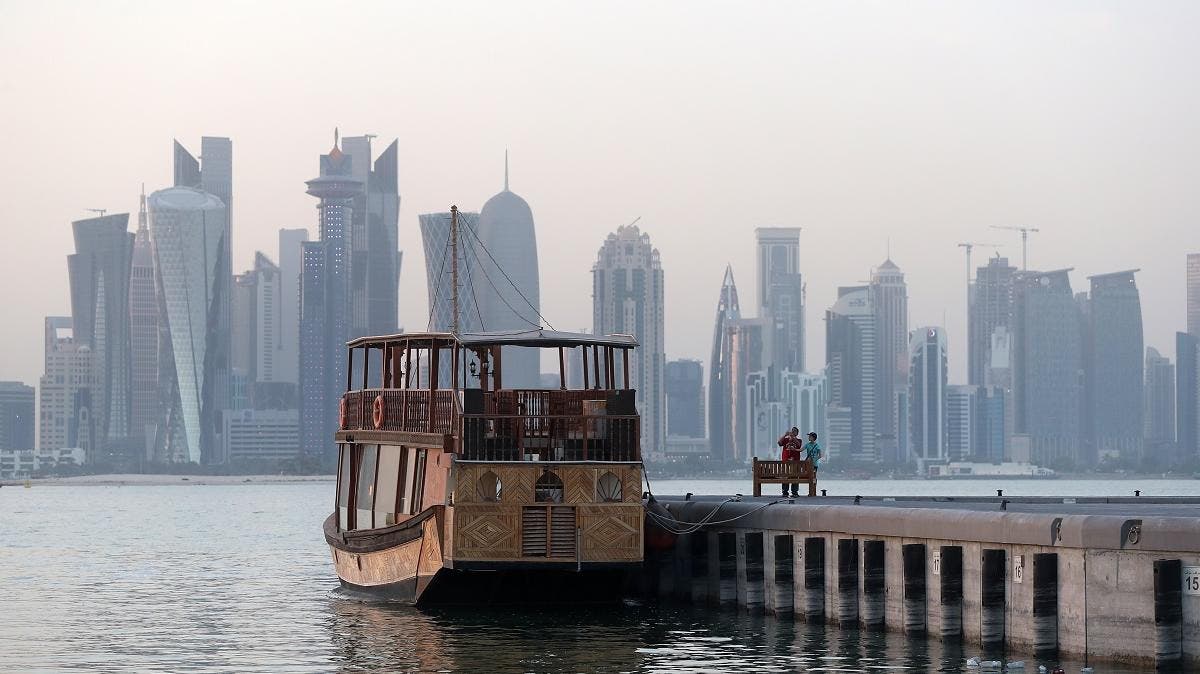
Qatar is widely known as one of the safest and most livable countries in the Gulf region, making it especially appealing for expatriates, who make up nearly three-quarters of the total population of around 1.7 million. It’s often called the “Middle East for Beginners” because it allows newcomers to enjoy Arab culture, customs, and hospitality without giving up too many Western comforts. The mix is unique—you can sip Arabic coffee in a traditional tent one day and shop for designer brands in an air-conditioned mall the next.
Living in Doha, Qatar
Once considered a quiet, lesser-known state compared to its larger Middle Eastern neighbors, Qatar has grown from a small desert peninsula into a nation of significant global influence. Its vast natural gas and oil reserves have turned it into one of the wealthiest countries on earth, with a per capita income that consistently ranks among the highest.
Over the past twenty years, Qatar has drawn international recognition not only for its economic strength but also for its investments in education, culture, and technology. The country has built impressive universities, cultural institutions, and sporting facilities, hosting major international events that put it firmly on the world map. The decision to host the 2022 FIFA World Cup was perhaps its most visible milestone—one that spurred huge development projects across Doha and showcased Qatar’s readiness to welcome the world, even amid mixed press coverage.
In modern Doha, traces of the old Bedouin lifestyle have nearly vanished, replaced by striking skyscrapers, luxury hotels, and shopping complexes that gleam under the desert sun. Camels and tents once dotted the landscape, but now cranes, metro lines, and futuristic buildings dominate the horizon. Still, you’ll find English spoken nearly everywhere, making life easier for the thousands of expatriates who have made Doha their home.
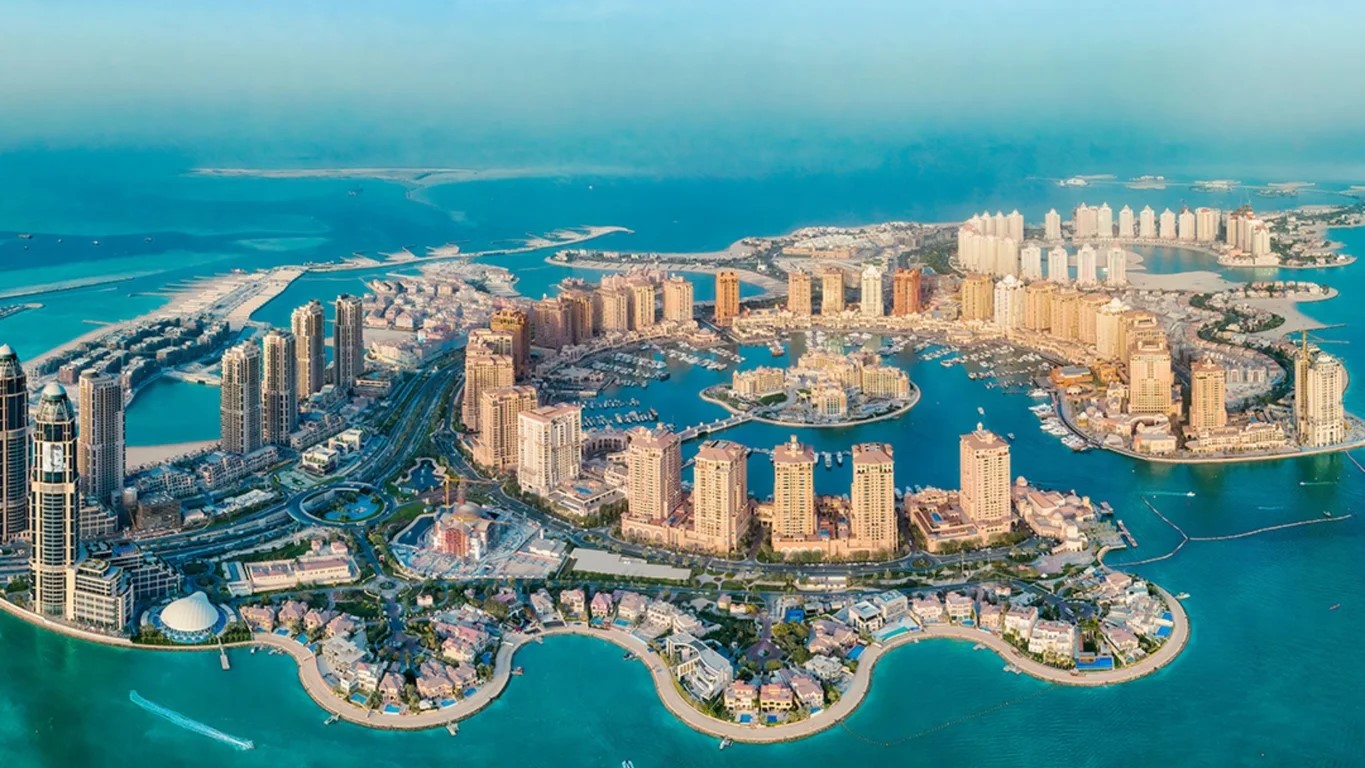
If you drive forty-five minutes outside the city, the scenery changes dramatically. The endless sand dunes begin, and every so often, you might have to stop as a caravan of camels leisurely crosses the highway. The desert offers a glimpse of the old Qatar, untouched and raw, where the silence stretches far and wide. Travelers often stop to photograph wild camels or interact with Bedouins, who sometimes offer visitors a chance to sit on their camels for a memorable snapshot.
Despite being one of the most Westernized countries in the Gulf, living in Qatar can still surprise newcomers. The pace of bureaucracy, occasional inefficiency, and certain cultural differences can cause mild frustration. Yet, with patience—and sometimes a quiet laugh—most expats adjust quickly. Once settled, daily life begins to feel familiar, and many grow fond of the place they first found puzzling.
At first glance, daily routines in Doha may seem much like those in Europe or North America. You’ll find international schools, supermarkets, cafés, and busy roads. Over time, you stop noticing the endless beige tones of the landscape, learn how to navigate life without home mail delivery, and adapt to the rhythm of five daily calls to prayer echoing across the city. You soon factor in the extra time needed for errands, learn which shops close for prayers, and discover that patience is as necessary as your air conditioner.
"Inshallah"
In Qatar, you’ll quickly learn the phrase “Inshallah,” meaning “God willing.” You’ll hear it everywhere—from market stalls to government offices—and it carries multiple shades of meaning depending on context. Traditionally, it expresses faith in divine will: “I will see you tomorrow, Inshallah,” meaning, “If God permits.” But for many expats, the phrase takes on a more humorous interpretation, often signaling uncertainty rather than firm intention.
A conversation might go something like this:
Expat: “When will my furniture arrive?” (Translation: It’s already three weeks late.)
Salesperson: “Tomorrow, Inshallah.” (Translation: It may or may not happen tomorrow—but it’s out of my hands.)
Eventually, you learn to smile when you hear it. The phrase is both a reflection of patience and a convenient shield against overpromising. It sums up a mindset shaped by faith, humility, and sometimes, an easy acceptance of delays as part of life.
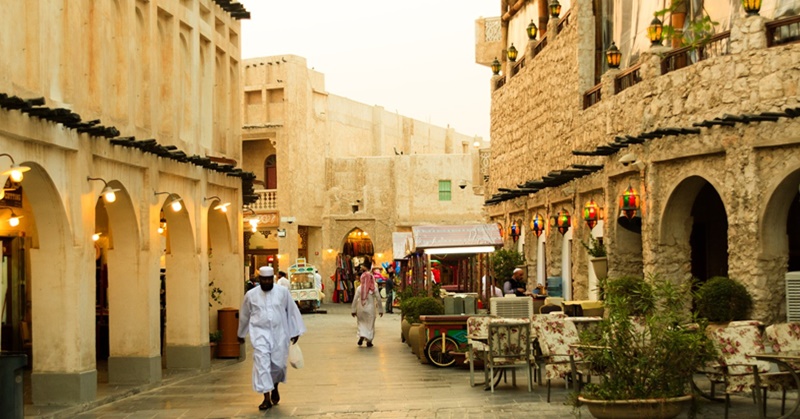
Culture
Qatar has modernized impressively, yet it remains deeply rooted in its Islamic heritage. Locals are open, generous, and proud of their traditions, and while they welcome foreigners warmly, they expect cultural respect in return. In public, modest behavior and dress are the norm. At home or private gatherings, personal freedom is greater—but in public, conservative appearance and manners are signs of respect.
Islamic principles shape the rhythm of daily life. Pork products are banned entirely, and alcohol is regulated with care. The workweek runs from Sunday to Thursday, a shift that often confuses newcomers. Many parents have accidentally sent their children to school late on the first few Sundays. Fridays are holy days, reserved for prayer and rest; most stores and offices remain closed until late afternoon. Even Christian churches, allowed in designated compounds, hold their services on Fridays to align with local customs.
Clothing
Traditional attire remains an important expression of identity. Qatari men typically wear the white thobe—an ankle-length robe that reflects elegance and simplicity—and top it with a head covering, the ghutra, secured by a black cord called the igal. In the cooler months, darker thobes appear, adding variation to the sea of white. Qatari women wear the black abaya, often beautifully decorated with beads or embroidery, paired with a hijab or sometimes a full veil.
For Western women, head coverings are not required, but modesty is expected. Shoulders, knees, and cleavage should be covered when in public spaces like malls or restaurants. While you may occasionally see someone dressed more casually, it’s wise to err on the side of respect. Enforcement of dress codes varies, but ignoring them can lead to embarrassment or even being asked to leave certain places.
Interestingly, many expat women come to appreciate these modesty norms, finding them liberating rather than restrictive. In a region where appearance draws attention, the dress code encourages comfort and simplicity—and in a way, creates a shared standard of decorum for everyone.
Calendar and Holy Times
Life in Qatar follows the Islamic lunar calendar, and religious observances shape social rhythm. The most significant period of the year is the holy month of Ramadan. During these weeks, Muslims fast from sunrise to sunset, abstaining from food, drink, and even smoking during daylight hours. The fasting is both spiritual and social—a reminder of empathy, patience, and discipline.
For non-Muslims, it’s essential to adapt respectfully. Eating, drinking, or smoking in public during daylight hours is prohibited, and even having a coffee in your car can draw disapproval. Many restaurants and cafés close during the day but reopen in the evening, transforming into lively gathering spots after sunset. Office hours also shift, with reduced daytime work followed by later evenings.
When the sun sets, a cannon is fired in Doha to mark the end of the day’s fast. Families and friends gather for Iftar, the meal that breaks the fast, while Suhoor—the late-night feast before dawn—often turns into social celebrations in hotels and cultural centers. Some Iftar buffets, complete with live music, traditional dress, and henna artists, become grand events. Prices vary widely, so it’s best to ask locals for recommendations to find the most authentic and enjoyable ones.
Ramadan changes the pace of the city, but it also brings a sense of unity and generosity. Streets light up, people share food with neighbors, and even expats often find themselves drawn into the spirit of reflection and gratitude that defines the holy month.
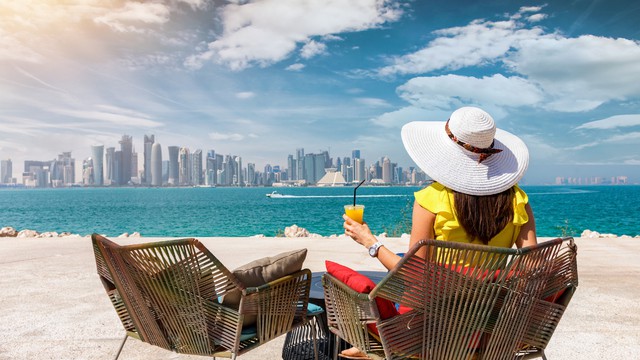
Weather
Arrive in Doha anytime between April and October and the first sensation that greets you is heat—intense, radiant, and everywhere at once. Summer highs can push into the 50s Celsius, and the humidity can make a short walk feel like a long swim. Even stepping from an air-conditioned car to a shop entrance can fog your glasses and cling your shirt to your back. It takes resolve, hydration, and a good sense of humor to function outdoors during peak summer.
Families often plan around it. Many expat parents and children leave as soon as school ends to spend the hottest months elsewhere, returning when temperatures soften. Late autumn through winter, Doha becomes genuinely pleasant—blue skies, cooler evenings, and a social calendar that moves outdoors. Cooler air sometimes brings more flies and, on breezier days, the kind of sand-laden gusts that coat patios and window sills in a fine beige film. Dust gets everywhere; you will learn to clean more often and to keep eye drops handy, especially if you wear contact lenses.
Despite the extremes, life adapts. Workdays start earlier, gyms get busier, and parks and corniche paths fill up after sunset. You learn the shaded parking spots, the mall entrances with the shortest dash, and that a small handheld fan can feel like a tiny miracle.
Traffic, Driving and Drivers
If the heat tests your stamina, Doha’s traffic tests your composure. Congestion can be unpredictable and, at times, spectacularly chaotic. Lanes seem more like suggestions than rules; you may see four cars pressing through space meant for two, while others mount curbs or use shoulders as if they were extra lanes.
Survival behind the wheel means thinking defensively and assuming the unexpected. Keep generous distance, scan constantly, and be ready to brake or change course when a driver dives for an exit late or a truck stacked with goats rumbles by at improbable speed. Accidents on the shoulder—sometimes dramatic ones—are a common sight and a reminder to slow down.
Traffic violations are frequent, and fines can add up quickly. Many expats make a habit of checking the Ministry of Interior traffic portal to see if any camera-captured infractions have appeared against their plate. Because fines are tied to the vehicle rather than the driver, verify a used car’s plate for outstanding penalties before you buy, or you may inherit someone else’s bill.
Roadway signage appears in Arabic and English, but coverage and placement can be inconsistent, with some signs arriving just a little too late to help you catch the right exit. Construction is constant, and new diversions can make yesterday’s GPS route obsolete by morning. Most long-term residents memorize the ring roads and navigate by landmarks or the nearest roundabout—arch, sports, treasure chest—rather than by street names. The silver lining: fuel is inexpensive, so the time cost of a long drive isn’t matched by a large bill at the pump.
You can hire a driver permanently or on demand if licensing seems daunting or you simply prefer the passenger seat. Many restaurants and stores deliver, and on days when traffic feels more like a contact sport, that convenience is priceless.
Papers, please!
Whatever month you land in Qatar, expect the residency process to involve patience, multiple appointments, and a tidy stack of documents. Even with a corporate expeditor guiding you, it helps to bring many passport-style photos (both white and blue backgrounds are commonly requested), along with photocopies of your passport and employment documents. You will hand them out repeatedly until your Qatar ID is issued. Think of it as a rite of passage: temporary inconvenience in exchange for full access to daily life.
Medical Tests
Residency requires a medical exam, fingerprinting, and a separate blood type test. The medical facility can feel orderly and swift one day, then crowded and stop-start the next. After you enter through the appropriate gender-designated door, you register, pay, and proceed to an x-ray and blood draw. The blood type test is done at clinics around the city.
Helpful hints for a smoother visit: pay by card to avoid cash queues; women may wear a plain, opaque white T-shirt during the chest x-ray rather than change into the facility robe; and be prepared for a bit of waiting between stations. Bring water, a phone charger, and patience. The system works—but sometimes on its own clock.
Going out – Eating and Drinking in Doha
Doha’s dining scene is broad and growing. From low-key neighborhood shawarma counters to hotel-based fine dining, you can eat your way around the world in a month of weekends. The safest strategy for street eats is to ask for recommendations; locals and seasoned expats know which places deliver freshness and flavor. When you spot parking lots filled with white Land Cruisers and tables of thobed and abayed diners lingering over shisha, you’ve likely found a winner.
Most hotels host higher-end restaurants spanning steakhouses, pan-Asian concepts, Levantine mezze halls, and pastry counters that look like art galleries. Reservations help on weekends. If you love long conversation and people-watching, outdoor terraces in the cooler months turn dinner into an evening ritual.
Alcohol
Alcohol is legal in licensed locations, but the rules are specific. To have a drink with a meal, head to hotels, the Diplomatic Club, Doha Golf Club, or select outlets at The Pearl. Not every hotel serves alcohol, so check before you book. If you plan to go clubbing, bring your passport or Qatar ID and respect dress codes. Do not drive after drinking—DUI laws are strict, and penalties can include deportation. Hotel cars are convenient but pricier than the turquoise Karwa taxis; factor that into your night out.
For home consumption, residents with a Qatar ID and a permission letter from the sponsoring employer can apply for a Qatar Distribution Company (QDC) card. Monthly purchase limits depend on the employee’s salary. During Ramadan, public sale and service of alcohol stop entirely; allowances are often adjusted before and after the holy month. Plan ahead.
Banking
Major banks dot the city with plentiful branches and ATMs. Until residency is finalized, opening a current account is usually not possible, and accounts commonly start in the employed spouse’s name. As soon as the account exists, add the other spouse as an authorized user—this ensures access to funds if the primary account holder travels. Cheques still see limited use, often for rent or car payments. For everything else, cards and online transfers dominate.
I am Woman
Qatar grants women broad freedoms, particularly in work, education, and public life, but daily bureaucracy still tends to route through the male head of household or the sponsoring employee. Leases, utilities, car registrations, and bank accounts often begin in that person’s name and may require employer letters. Some banks maintain separate service areas for women—an unfamiliar sight for newcomers, but easy to navigate after your first visit. As with many things in Doha, once you know the system, it becomes routine.
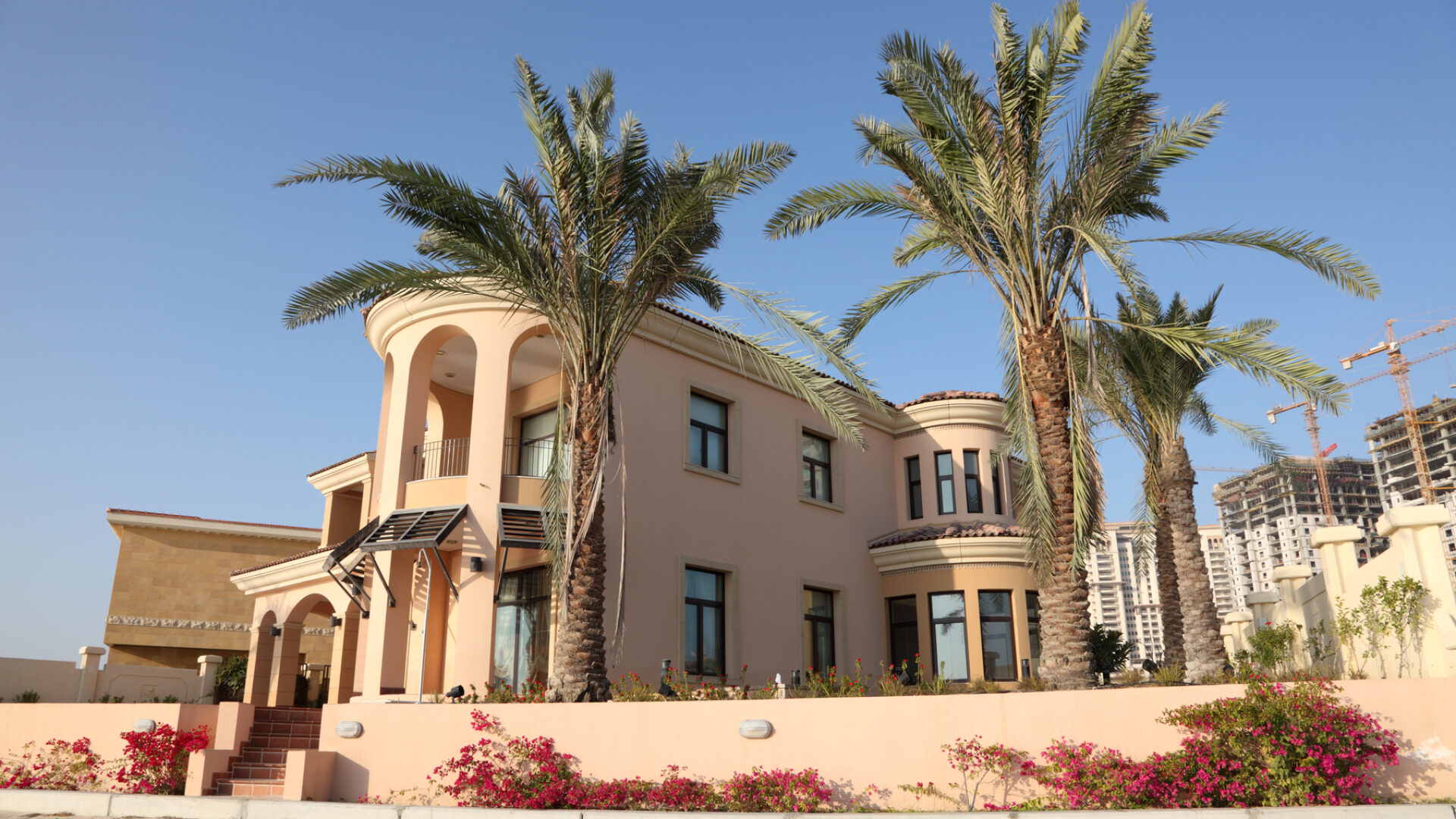
Housing
Most expats live in gated compounds composed of villas—townhouse-style or attached homes—ranging from a handful to a hundred units or more. Compounds function like small neighborhoods, often with pools, gyms, security, and shared recreation. Stand-alone villas and apartments are common alternatives, and ongoing development means the market offers more choice than ever.
Some companies allocate staff housing in closed compounds not available to the public. If you’re house-hunting independently, you can work with a leasing agent or drive around and ask gate staff about vacancies. Guards can often arrange a quick viewing.
A few practical notes to consider:
-
Lease terms may require post-dated cheques for the full term and a cash deposit when you sign.
-
Furnished usually means appliances and basic living/bedroom furniture; semi-furnished typically includes air conditioning and some or all appliances.
-
Finding minimalist furniture can take effort. Ornate, velvet-and-gold pieces are abundant; simple, modern lines sell quickly. If you love it, buy it when you see it.
-
Location matters. With traffic variability, living near your most frequent destinations can save hours weekly. Check proximity to loudspeakers at nearby mosques if you’re a light sleeper.
-
Maintenance quality varies. Properties with responsive in-house teams command higher rents and waitlists. Many seasoned expats prefer an older unit with stellar maintenance over a newer villa with slow repairs.
-
Amenities differ by price point. Beyond security, pool, and gym, larger compounds may add tennis and basketball courts, cafés, minimarts, dry cleaning, small theaters, and rentable common rooms for gatherings.
Household help
Once you’re settled, hiring help is straightforward and common. Many households employ a housekeeper or nanny—especially useful for managing dust and keeping floors clean. For live-in arrangements, an agency can handle sponsorship and background checks. For weekly or occasional cleaning, word of mouth works well, and offers often arrive organically from neighbors’ staff seeking extra hours on off days.
Communications
A mobile phone is essential. Choose between Vodafone and Ooredoo, purchase a SIM, and pick a plan or pay-as-you-go credits. Both providers run citywide shops and kiosks and also supply broadband, though installation slots can fill up. Contact them the moment your lease is signed to get in the queue.
TV and cable options skew toward Ooredoo packages mixing Arabic and international channels; many households also add satellite services. Villas frequently come pre-wired with dishes, but establishing service is up to the renter.
Home mail delivery doesn’t exist. Courier services may not deliver to compounds, so plan alternatives: rent a P.O. box with QPost, use your workplace address for critical packages, or sign up with a private receiving service that consolidates shipments. Whichever path you choose, assume delivery will take longer than you expect—and then add a few days.
Security
Qatar is notably safe. Compounds have security, public spaces are staffed with guards, and crime deterrents are strong. Basic precautions still apply—lock doors, keep valuables discreet—but you’ll often find that a misplaced item is exactly where you left it.
Personal safety habits on the roads can be looser than many expats are used to. It’s common to see children unbelted, babies on laps, and drivers multitasking in ways that would shock a driving instructor. Protect your own passengers with proper seats and belts, and drive defensively. The safest place to model good habits is in your own car.
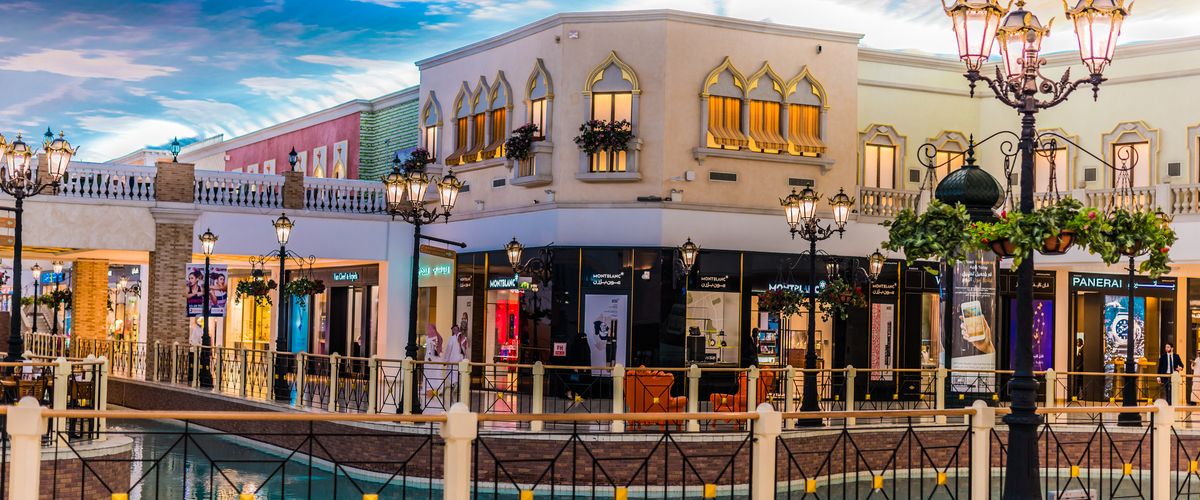
Shopping
Doha’s malls make it easy to meet your needs, even if they don’t always satisfy every want. Expect familiar global brands—Zara, Topshop, Monsoon—though styles and sizes can be limited. Return policies can be brief, sometimes only a few days even with a receipt, and refunds often come in cash.
For school supplies, bring a starter kit. Selection improves around back-to-school season, but during the year you may hunt for off-brand or outdated stock at surprising prices. If a particular character lunchbox will save your morning routine, pack it in your suitcase.
To experience old-style commerce, head to the souqs. Souq Waqif is a maze of shops selling spices, perfumes, fabrics, musical instruments, camping gear, pets, and every camel-themed souvenir you can imagine. Vendors typically open mornings, close midday, and come alive again late afternoon through evening—prime time for atmosphere and people-watching. The outdoor kebab stands and bread bakeries offer great value and a front-row seat to the city’s social life.
Behind Salwa and Wholesale Market roads, you’ll find garden supplies, baskets, ceramics, and the produce and meat markets. The produce market is a kaleidoscope of color with stacked fruits and vegetables under open-air roofs, while men with wheelbarrows shadow you to carry purchases. Nearby, the fish and meat halls are practical rather than picturesque—fresh, fast, and not for the faint-hearted.
If you enjoy bargaining, be firm but friendly. A quick way to start is, “I live here—give me your best price.” For generic souvenirs, another stall likely sells the same item; unique pieces require more patience. Large retailers and many mall shops accept cards, but American Express is less common. Carry cash for souqs and small vendors.
For groceries, one-stop perfection is rare; most people rotate stores. Inventory swings are normal, and when a beloved item appears, you might see expats quietly hoarding three months’ worth. Popular choices include Mega Mart (best for Western imports, pricey for basics), Carrefour and LuLu (comprehensive and generally good value), Giant (broad aisles, fewer Western brands), and Spinneys (select imports). Expect to pay more for anything flown in, accept that freshness can vary, and rinse produce with a bit more care than you would at home. As a final quirk, some trolleys seem to have a mind of their own; you learn to steer with a light touch and a small smile.
Expat Life – Finding Friends
Community forms quickly in Doha. Compounds host casual gatherings, and hotels run themed beach or music nights. Schools are the center of family life, with weekend sports and clubs—swimming, football, rugby, baseball/softball, ice hockey, scouts—pulling parents together on sidelines and carpools. Coffee groups for parents meet throughout the week, and if you like, you can fill your calendar with social meetups, volunteer projects, and language exchanges. The easiest rule of thumb: say yes to the first few invitations; your network builds from there.

Things to do
Doha’s cultural map is exceptional for a city its size. The National Museum of Qatar, opened in 2019, arcs over the waterfront like a desert rose—stunning outside, deeply immersive inside. The Museum of Islamic Art, designed by I. M. Pei, remains a masterpiece with thoughtful permanent galleries and rotating exhibitions that draw international attention. Mathaf: Arab Museum of Modern Art showcases contemporary voices from the region, while Katara Cultural Village hosts concerts, theater, film screenings, and seasonal festivals along a scenic public beach.
When the weather cools, weekends migrate toward the desert. Families camp at Zekreet or the Inland Sea; adventurers join dune bashing convoys with experienced drivers, tow ropes, and water jugs at the ready. The Qatar Natural History Group organizes regular outings for those who prefer guided exploration.
Sports are woven into the calendar—camel racing with robot jockeys, top-flight football, tennis and golf tournaments, equestrian events, and motocross. Tickets are usually affordable and easy to find at mall kiosks or event sites.
Travel is a perk of living here. Short daily flights connect you to Dubai, Abu Dhabi, Bahrain, and Jordan; Europe, Africa, and Asia feel closer from Hamad International than they look on a map. Many residents plan quick long-weekend escapes when summer looms or just to refresh the senses with greener views.
Qatar remains one of the Gulf’s safest, most opportunity-rich destinations—a place where business ambition, cultural investment, and everyday hospitality meet. Some people count the months until their posting ends; others settle in, learn the rhythms, and discover how much the country has to offer. For many, the longer they stay, the more they see a nation still unfolding—and a city that keeps inviting you to be part of its story.


